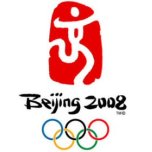Review: “The Mummy: Tomb of the Dragon Emperor” starring Brendon Fraser
 Some movies are not intended to be high art. Before the invention of television, this was often the case: the thirties, forties and fifties were littered with throwaway films with forgettable characters and laughable story lines. The most extreme examples were the movies that were made to work with the traditional red lens / blue lens 3-D glasses. Usually these “high tech” films were much of a muchness, involving weird creatures reaching out for the audience.
Some movies are not intended to be high art. Before the invention of television, this was often the case: the thirties, forties and fifties were littered with throwaway films with forgettable characters and laughable story lines. The most extreme examples were the movies that were made to work with the traditional red lens / blue lens 3-D glasses. Usually these “high tech” films were much of a muchness, involving weird creatures reaching out for the audience.
The raison d’etre behind these movies, (and for the sake of argument, let’s call them “Saturday Matinees”), was that they would entertain for a couple of hours and leave the audience feeling as if they got their money’s worth. Mostly these films are now remembered by a few enthusiasts, many of whom are merely reliving their childhoods.
In this sense, “The Mummy: Tomb of the Dragon Emperor” is part of a long tradition. It is a silly, ridiculous “Saturday Matinee”, but if one can park one’s intellect at the cinema door, it is reasonably entertaining.
The film begins with a tale of how China became a unified country under the leadership of a ferocious Emperor (portrayed by Jet Li). Fearing that he would not live long enough to do what he set out to do, he calls upon a sorceress to make him immortal. She then falls in love with the leading general of the Empire; the Emperor kills the general, and in revenge, she turns him into a clay figurine, and his army into the famous “Terracotta Warriors”. Obviously, anyone with a respect for history will be left weeping if they take this portion at all to heart. While it is true that the first ruler of a United China was ruthless and did want to become immortal, he tried to achieve this by drinking mercury rather utilising black magic; the parable of his rule ending earlier than it should have due to the pursuit of eternal life is worth putting into a much grander movie.
After the phony history, the film changes to a scene in Oxfordshire in 1946, some years after the last in the Mummy series finished. Rick O’Connell (played by Brendan Fraser) an American adventurer and gunfighter, is in retirement along with his wife Evelyn. She, apparently, has given up archaeology in favour of writing Mummy-based pulp fiction. I appreciated this plot point, as it was a symbol that the film wasn’t taking itself too seriously.
Sadly, however, Rachel Weisz, who had played Evelyn in the previous films, is gone, replaced by Maria Bello. Ms. Bello does her very best to fill Ms. Weisz’s shoes, but she lacks the vulnerable, hesitant quality that Ms. Weisz brought to the role, which in turn made her so compelling.
It is quickly established that both O’Connell and Evelyn are bored with retirement and long for adventure. It is also made clear that they are estranged from their grown son, who is shown working on an archaeological dig in China and who, predictably, finds the tomb of the First Emperor. It is somewhat difficult to ignore the motifs borrowed from other films: the father / son estrangement echoes Indiana Jones and the Last Crusade, the adventurer bored in retirement scenario has been used so often that it is almost a cliche. Furthermore, Fraser and Bello do not look nearly old enough to play the parents of their on-screen son Alex (played by Australian newcomer Luke Ford); neither “father” nor “mother” has a single grey hair.
Thanks to an immortality potion contained within a diamond vessel, a ruthless general (who bears a passing resemblance to Chiang Kai Shek, the ruler of Nationalist China) manages to wake the Emperor, who begins tearing up Shanghai in a long chase involving bronze horses, and a truck full of fireworks.
At this point the film gives up any pretence of seriousness, and the brave band, joined by Evelyn’s feckless brother (played by John Hannah) and guided by the mysterious Lin (played by Isabella Leong) wanders into the mountains to prevent the Emperor from finding the “Pool of Immortality” in Shangri La. Predictably, Alex and Lin have a stormy relationship, however the squalls are unrealistically brief and Lin bursts out telling him, “I love you completely!”. The sorry bunch then have a gunfight with the Emperor and the evil general at a tower which points the way to Shangri La. As an added treat, the film throws in the least convincing computer generated creatures (ostensibly they’re Yetis), that I have ever seen. Rick O’Connell is hurt in the fighting, with a blade through the back, and he must be taken to Shangri La and healed with the “Waters of Immortality”, a direct rip off of the healing properties of the Holy Grail in “Indiana Jones in the Last Crusade”.
Needless to say the Emperor gets his hands on those same waters, he becomes whole again, and he revives the Terracotta Army, who will become also immortal if they cross the Great Wall; we’re never told why this is the case. But again, there is more fighting, more gunplay, more people sliced open, stabbed, crushed and sliced to pieces. John Hannah gets the hell out of Dodge and decides to go to Peru as there are, in his words, “no mummies there”. As he’s sadly mistaken, we, the audience, have the last laugh as the lights go up.
I must admit that I was chuckling as I left the theatre. After all, the film’s take on Chinese history was so daft, I wondered how they managed to convince Mr. Li, Ms. Leong and Michelle Yeoh to appear in it. I was also curious as to how the producers managed to avoid the ire of the Chinese authorities given the ridiculous portrayal of post war Shanghai. It’s shown as a town full of bright lights and swinging bands, when it should be an unhappy, torn up city that is dealing with the aftermath of Japanese occupation and the dread of civil war. We get no inclination of the real life conflict between the Nationalist (Kuomintang) and the Red forces; the modern forces we do see are presented as a “paramilitary” group.
But obviously this film was not intended to educate or to enlighten; it was there to pass the time in a pleasant way, just like the Saturday Matinees of previous eras. Yes, its based upon a lot of recycled themes. Yes, its very silly and over the top. Yes, the actors could have sleepwalked through their scenes and it wouldn’t have made any difference, but if one needs a movie loaded with mindless, colourful entertainment, this fits the bill.
This statement, however, comes with a caveat. It was a motif of the Mummy films of the past that the creature was impossible to kill, and thus a sequel was always in the offing. In this case, lest ridiculousness becomes a burden, it is perhaps best to let this series rest in peace.

 The Beijing Olympics begin tomorrow, and I can’t help but feel a surge of anticipation. I have religiously watched every Olympic Games – both Summer and Winter – for as long as I can remember. Perhaps it’s because there is something compelling about witnessing people giving their absolute all, not holding back any reserves and pushing themselves to their utmost because there may never be another chance to shine so brightly. Perhaps it’s because it represents a chance to discover more about countries which are rarely in the news; for example, few people in Britain or America spared a thought for the South American nation of Surinam until Anthony Nesty won the gold in the 100m butterfly in 1988. And who can forget “Eric the Eel”, the swimmer from Equatorial Guinea who competed, albeit thoroughly unsuccessfully, in 2004?
The Beijing Olympics begin tomorrow, and I can’t help but feel a surge of anticipation. I have religiously watched every Olympic Games – both Summer and Winter – for as long as I can remember. Perhaps it’s because there is something compelling about witnessing people giving their absolute all, not holding back any reserves and pushing themselves to their utmost because there may never be another chance to shine so brightly. Perhaps it’s because it represents a chance to discover more about countries which are rarely in the news; for example, few people in Britain or America spared a thought for the South American nation of Surinam until Anthony Nesty won the gold in the 100m butterfly in 1988. And who can forget “Eric the Eel”, the swimmer from Equatorial Guinea who competed, albeit thoroughly unsuccessfully, in 2004? At the time of writing, it is highly likely that the new Batman film, entitled “The Dark Knight” is on its way to being the largest money-grossing film of all time. It certainly is exploiting the merchandising possibilities as well: it’s difficult to escape mentions of “The Dark Knight” these days, there is even a “dark hamburger” which is a unusual attempt at “marketing to the gut instincts”.
At the time of writing, it is highly likely that the new Batman film, entitled “The Dark Knight” is on its way to being the largest money-grossing film of all time. It certainly is exploiting the merchandising possibilities as well: it’s difficult to escape mentions of “The Dark Knight” these days, there is even a “dark hamburger” which is a unusual attempt at “marketing to the gut instincts”. Whenever I see an exhibition or documentary about the Roman Empire, a question springs to mind: when it was over, did the people of Rome know it? After all, “the end” in their case didn’t mean the sun didn’t stop rising and setting, nor did it imply the spring would not arrive after winter, indeed, the city of Rome carried on. Yes, the Senate and the Emperor were gone, but perhaps to many Romans this seemed like a temporary inconvenience, a rest stop on an otherwise long, paved highway of history. One wonders when it finally sank in that it was all over; was it when a Barbarian King was crowned? Or was it when the last soldier of Justinian slouched off? When did the Romans realise that the glory days were gone for good, and what did they do?
Whenever I see an exhibition or documentary about the Roman Empire, a question springs to mind: when it was over, did the people of Rome know it? After all, “the end” in their case didn’t mean the sun didn’t stop rising and setting, nor did it imply the spring would not arrive after winter, indeed, the city of Rome carried on. Yes, the Senate and the Emperor were gone, but perhaps to many Romans this seemed like a temporary inconvenience, a rest stop on an otherwise long, paved highway of history. One wonders when it finally sank in that it was all over; was it when a Barbarian King was crowned? Or was it when the last soldier of Justinian slouched off? When did the Romans realise that the glory days were gone for good, and what did they do? According to Pew Research, 12% of the American electorate believe Barack Obama is a Muslim. This is in spite of the fact that every last piece of evidence suggests otherwise: Barack’s father was an athiest, as was his mother. The fact that he went to school in Indonesia with a bunch of Muslims does not constitute proof. Indonesia is the most populous Muslim country in the world; as he presumably was not living inside a bubble during his time there, he was bound to be educated alongside Muslims, just like any other expatriate child.
According to Pew Research, 12% of the American electorate believe Barack Obama is a Muslim. This is in spite of the fact that every last piece of evidence suggests otherwise: Barack’s father was an athiest, as was his mother. The fact that he went to school in Indonesia with a bunch of Muslims does not constitute proof. Indonesia is the most populous Muslim country in the world; as he presumably was not living inside a bubble during his time there, he was bound to be educated alongside Muslims, just like any other expatriate child. I'm a Doctor of both Creative Writing and Manufacturing and Mechanical Engineering, a novelist, a technologist, and still an amateur in much else.
I'm a Doctor of both Creative Writing and Manufacturing and Mechanical Engineering, a novelist, a technologist, and still an amateur in much else.




